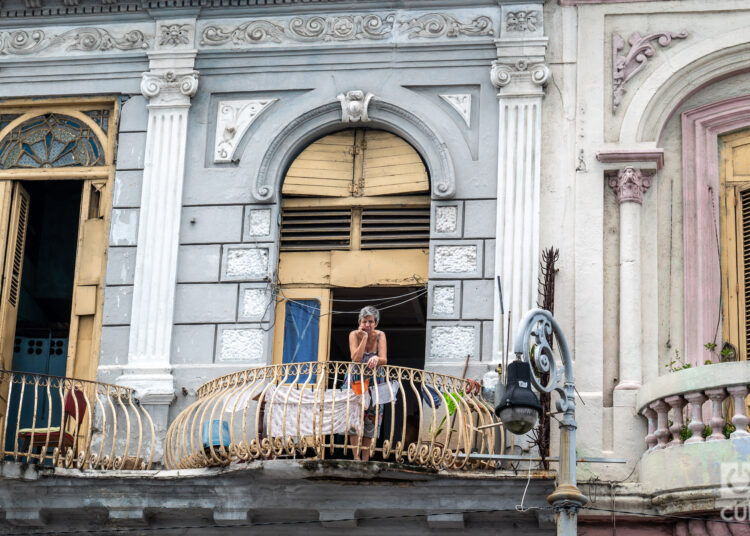Rosario1 knew what was coming. She stared at the painting, which she knew by heart, and thought of her daughter, her son-in-law, her two grandchildren.… She stood still and waited. Her muscles tensed and the jolts threw her from the sofa to the floor. All the time she was aware of the spasms, the gasps, and the dull thud of the bony body against the floor. When the crisis ended, she looked at the painting again and breathed a sigh of relief: all she wanted was to live a little longer to hug her family again.
Rosario’s passion was always teaching, but at 73, retired with a pension of 1,578 CUP per month (equivalent to about 5 USD), she finds no motivation to continue. In addition to epilepsy, she suffers from other illnesses. She avoids leaving the house and asks for very little help from her neighbors. She does not want to bother those she knows, and she fears others: the stories of violence are too alarming to open the door to strangers.
She could not explain why she clicked on the link and began to read my questionnaire, with which I proposed to learn about the experiences of elderly women who have been left alone in Cuba or in the care of dependent relatives.2 Perhaps she felt she could pour her heart out by answering my questions.
“My life changed completely after my daughter left for the United States three years ago. I am hit by sadness, loneliness, abandonment, emptiness, and pain,” Rosario confesses through WhatsApp, her almost exclusive means of communication. “I went to my polyclinic three times and the oncologist did not come. After my daughter left, I was admitted to the Day Hospital (psychiatric service) for three months, but even with suicidal thoughts, I was discharged. I am not able to face life or take care of myself. I am not healthy enough to keep the house clean, or go out for food, which some neighbors pick up for me,” she said.
The empty nest
Most of the 66 women surveyed have a high level of education: 74.2% reached higher education and 22.7% finished high school. However, one thing they all have in common is that, after retirement and the emigration of children or grandchildren, they feel unmotivated to start personal projects.
María del Carmen López, a geologist, university professor, and researcher, now retired, does not deny it: the only strategy to deal with her emotional state is her visit to a psychiatrist and when friends come to visit her. “I am always saddened by the absence of my daughter, who helped me with my health problems because she is a doctor. I have tried to manage my emotions, but I have fallen into a deep depression,” this woman from Cienfuegos says. “My illnesses (occipital neuralgia, chronic neuropathic pain in the pelvic floor, neurological problems, and anxiety) have become worse. The only thing that makes me happy are the calls from my grandson and my daughter, who cannot talk much on the phone because of her work.”
Although she lives with her husband and son, María del Carmen feels that she cannot handle her share of domestic responsibilities, because her emotional state and illnesses limit her: “I think my son will also go to Brazil. I wonder who will take care of us when the time comes.”
Like her daughter, most of those who have emigrated from Cuba in recent times have done so due to the crisis, exacerbated by the COVID-19 pandemic, although the motivations are as diverse as there are personal contexts.
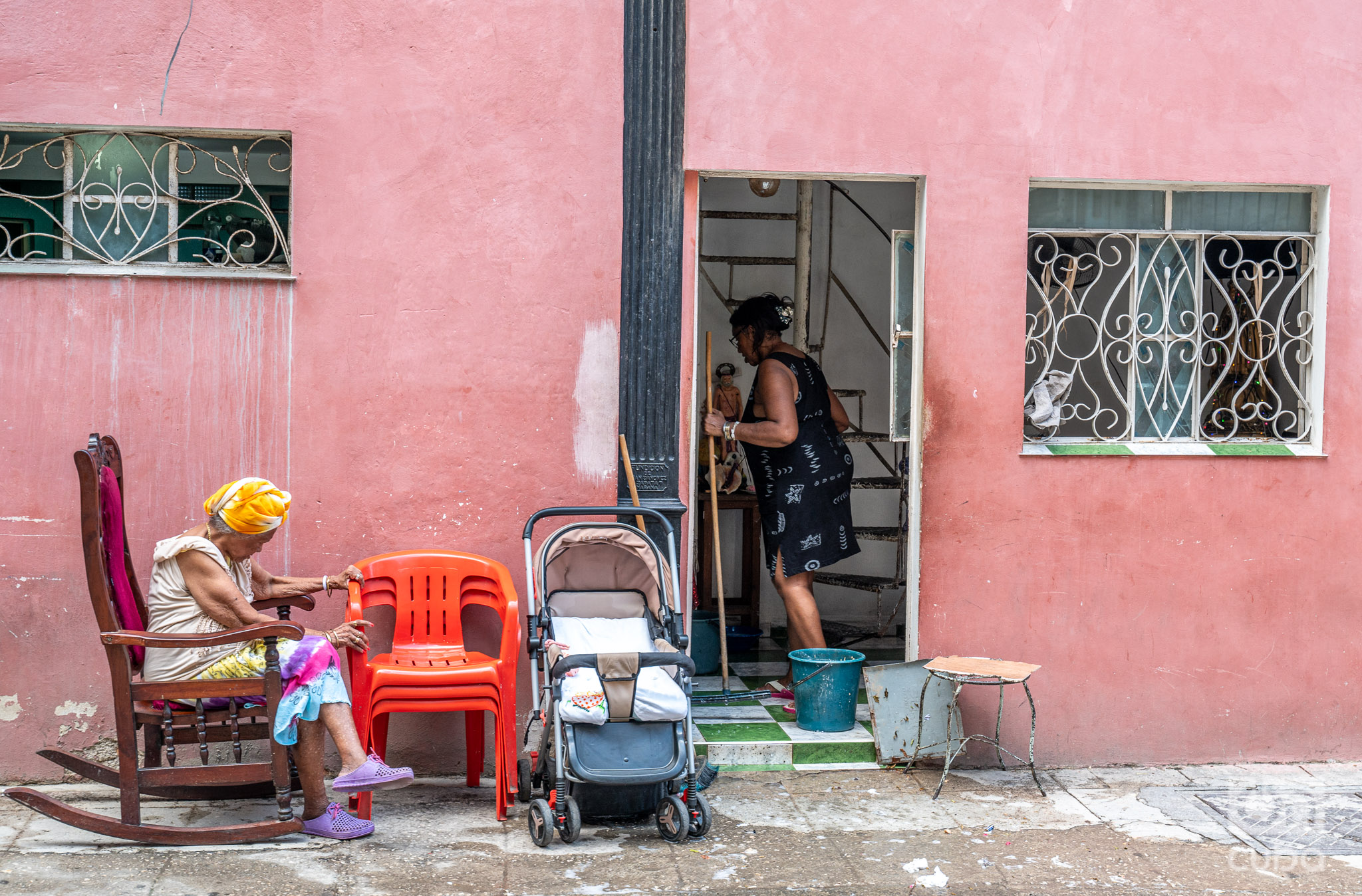
The United States has recorded the entry of 850,000 migrants from the island since 2022, according to figures published this year by that country’s Customs and Border Protection (CBP). However, in that period, Cubans have also emigrated to other nations in recent years, including Spain, Mexico, Canada, Italy, Venezuela, Ecuador, Argentina, and Brazil.
The National Office of Statistics and Information (ONEI), in its Demographic Indicators (July 2024), published that the country’s migration balance between 2021 and 2023 is estimated at more than 1 million people. In the same period, the working-age population decreased by 121,600, according to official data. In 2023, it was reported that almost a fifth of the Cuban population (more than 2 million people) was 60 years of age or older.
A survey conducted for this report, via WhatsApp, among 32 Cuban emigrants, revealed that 83.9% considered it “a lot” to leave their parents and grandparents in Cuba before emigrating, but did not find another way to improve their economic situation. Only 9.7% said that leaving their elders behind did not affect their decision, since “they had already made their lives.”
The elderly who remained in Cuba were, for the most part, the mothers of the people surveyed (62.5%), followed by grandmothers (56.3%), fathers (50%) and grandfathers (25%). The destinations of these emigrants included the United States, Mexico, Germany, the Congo and Chile.
On the other hand, the survey that we circulated among elderly women with emigrated relatives showed that in 42.4% of the cases, their children were outside the country, while 31.8% said that their entire family resides abroad.
Half of the women indicated that it has been more than two years since they said goodbye to their relatives, and it is striking that 47% of the participants said that their emotional situation after their family’s migration is “negative” or “very negative.”
The participants in the survey summarized their life after the emigration of their loved ones with phrases such as “deep depression,” “immense emptiness” and “constant longing.”
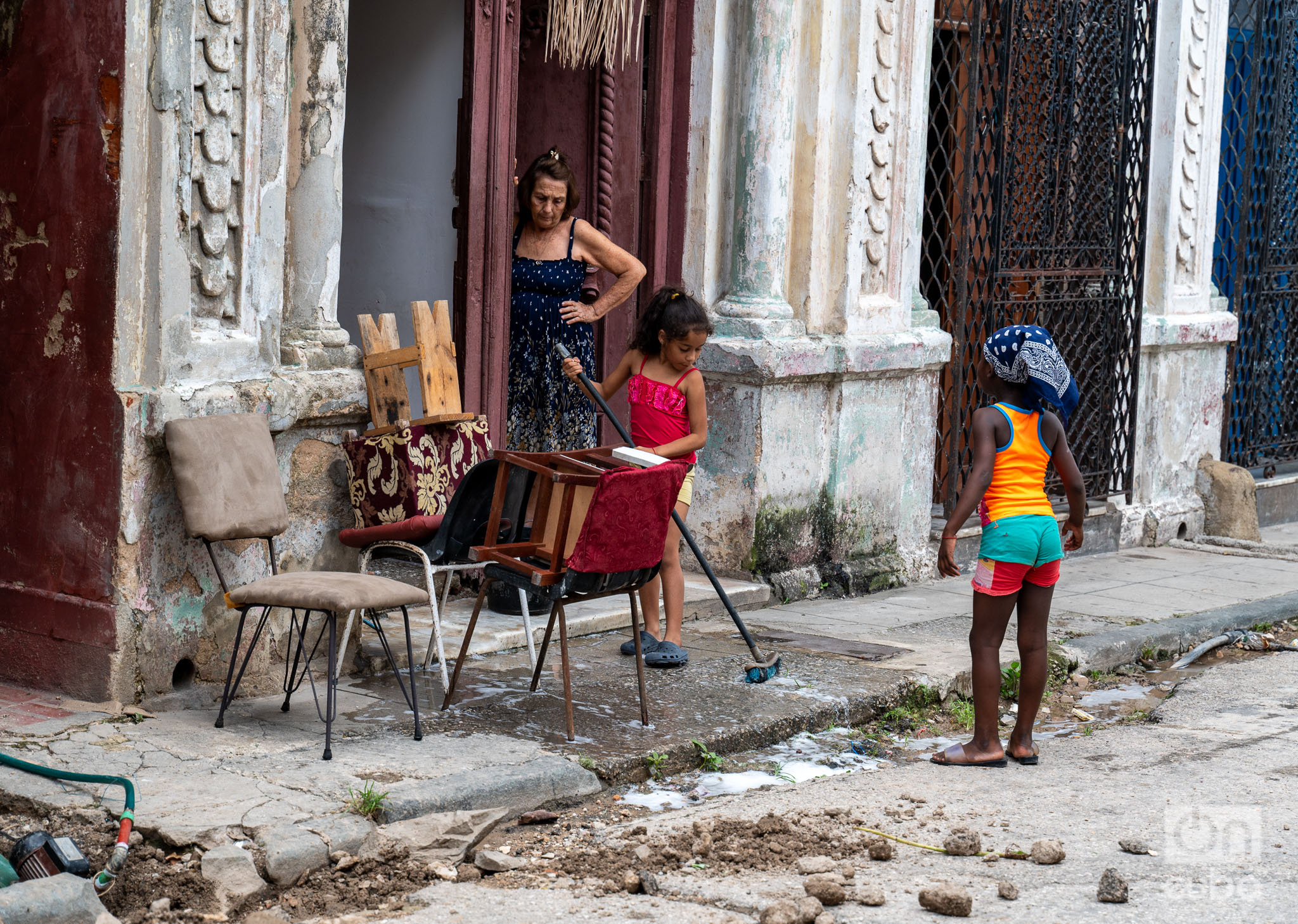
Caring for those who care
The crisis imposes physical and emotional strain, especially on people with few resources (most of the population), who face high prices for basic goods and services, in addition to the lack of medicines in the pharmacy network. Many depend on money or food packages sent to them by relatives from abroad. This causes emotions to be ambivalent: on the one hand, they are happy about the economic improvement and the new opportunities for those who emigrate; and on the other, they recognize the emotional lack of protection they feel, especially at advanced ages.
In the last part of the form, we invited women to anonymously share some relevant details of their situation and experiences, resulting in moving testimonies:
“Thousands of elderly people have been left to self-finance ourselves when a carton of eggs costs 5,000 CUP and the blister of the medicine I need costs between 1,000 and 2,000 CUP on the street. My pension is only 1,500.”
“In-person help is very important. Those who emigrate often make up for this lack with money or other material things and do not worry about constant and true communication.”
“The elderly’s lack of quality of life accelerates the aging process and the state of helplessness. If we had a dignified pension, optimal and real access to medicines, preferential access to quality public services, and effective social security, we could go through old age in better emotional and physical condition.”
Stress and the feeling of vulnerability cause profound psychological effects on the elderly. Such factors accelerate the deterioration of their quality of life.
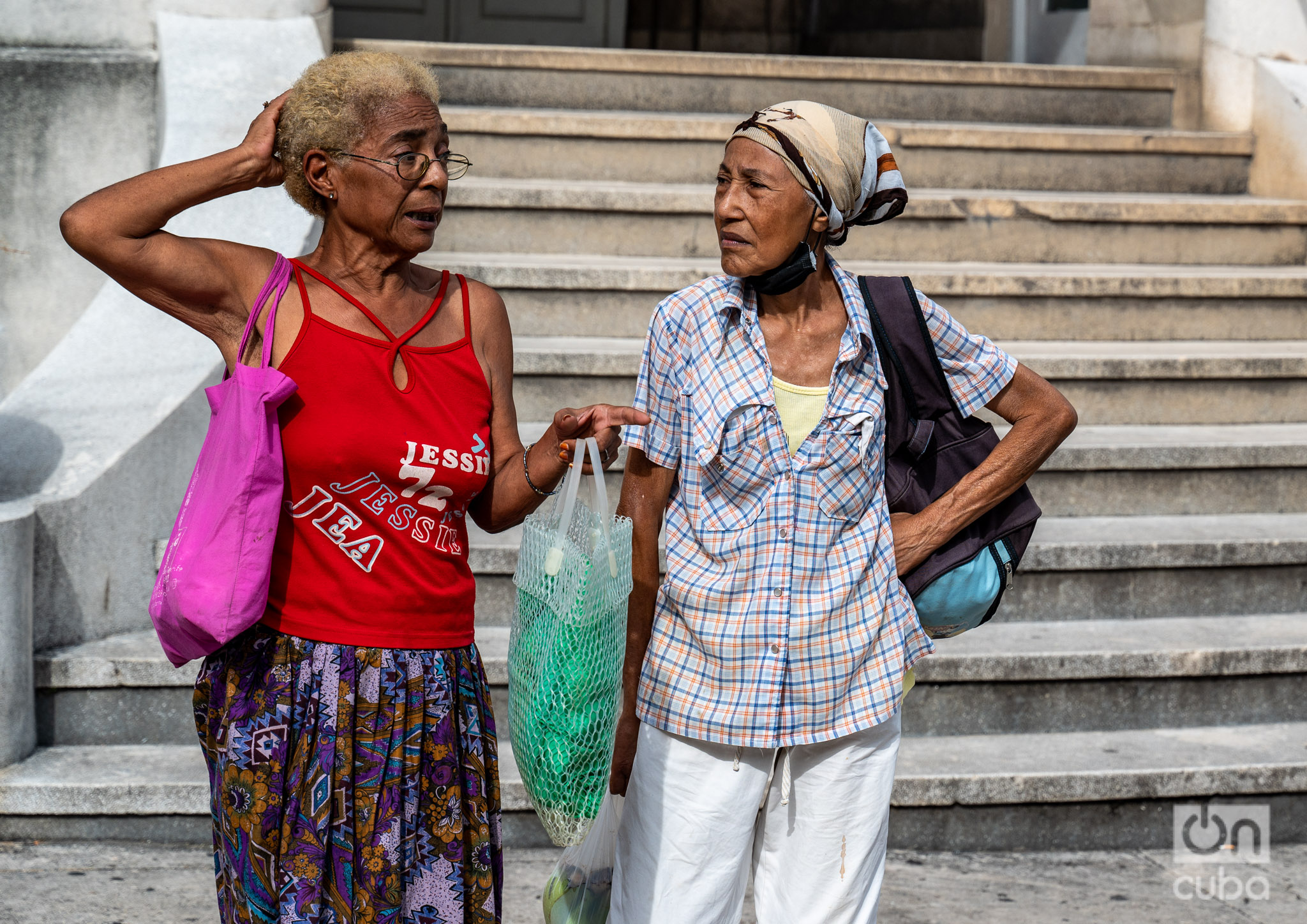
Loneliness and overload
María Teresa Hidalgo, a second-degree specialist in geriatrics and gerontology and head of the Lucía Íñiguez Clinical-Surgical Hospital in the province of Holguín, assured OnCuba that migration has had a significant (and negative) impact on the psychological health of the elderly in recent decades.
According to the specialist, most women who have been left without the direct physical and emotional support of their children, brothers, or husbands at this stage of life come to the doctor with decompensated chronic illnesses, which have their roots in this separation.
Hidalgo states that those who are somatically affected by the separation are those who visit her most for depression and chronic illnesses. The most recurrent among the latter are high blood pressure, ischemic heart disease, and diabetes mellitus.
The geriatrician also notes that, in her experience, there are examples of women between sixty-five and seventy who have had to devote themselves to caring for relatives, who are sometimes sick. This brings with it an overload.
Others have been left to care for grandchildren, at a stage in life when they should no longer have this type of responsibility. This burden, also psychological, makes them more vulnerable to the different illnesses they already suffered from, which is offset by stress.
“These women have to make changes in their lifestyle and daily routines due to the separation, which affects their physical and mental health. Of course, not everything is negative: many older patients have adequate functionality. From an economic point of view, they improve significantly and have a quality of life, even if they are alone. Some also stay with other children or with their husband and can lead a life that sometimes improves significantly,” said the doctor.
In the majority, women are left to care for children and grandchildren, while facing losses that affect their mental health, although it is important to highlight that the men of the families, faced with new contexts and needs, are also assuming these responsibilities, especially when there is no woman in charge. Migration disrupts homes and generates family conflicts, while remittances improve the quality of life, favoring the coexistence of the pain of absence and the hope of return.
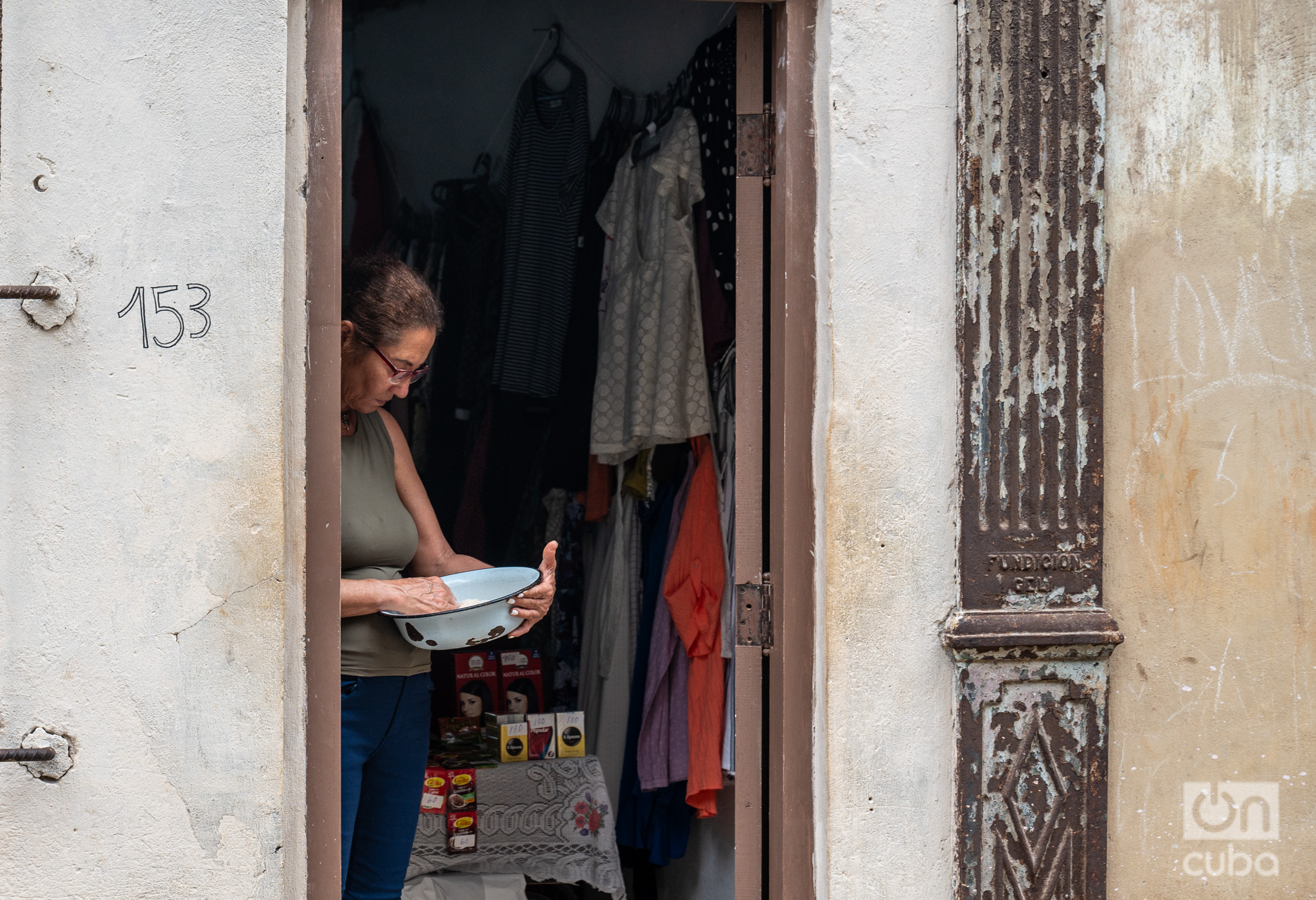
And when they can’t?
Two years ago, Jessica Suarez hugged her mother, who had been diagnosed with schizophrenia, for the last time. She did not want to be overcome by the feeling of anguish, or she would not be able to turn around and board the plane to Tampa with her children and husband after they had been granted humanitarian parole. Fifteen months before that, her younger brother had made the same decision, although by a more unsafe route: the so-called “volcano route.”
The mother was told that her son had been offered a work contract in Mexico. That kept her calm for a year. Then she was told that he would cross into the United States thanks to the parole. The woman, who is not yet 60 years old (although she is retired due to her illness), reacted better than her children had imagined.
“After losing the hold she had on us, she clung to her husband, who was sick with cancer,” Jessica says. “Unfortunately, he passed away. Now she has dedicated herself to caring for her mother and sisters, even when she is sick. She is practically alone trying to survive and get ahead with what she manages to do there and what we can help her with from here,” she said.
César, a university student living in Artemisa, recounts a similar situation: “My mother took care of my late grandmother alone for years after my uncle emigrated in 1999. She had to stop working. Very recently, my great-aunt, who took care of her brother until he died, was also left alone. She has the beginnings of senile dementia and her son lives in the United States, so my mother stays with her some nights because a niece who had been left in charge could not stand it.”
Our survey, answered by Cuban women from the three regions of the country (West, Center and East), revealed that 71.2% of these women are in charge of older people, such as parents, uncles or brothers, while 34.8% take care of their children, 12.1% of their grandchildren and 6.1% of their sick or disabled husband.
On the other hand, only 10.6% have no dependents under their care and 3% are in charge of a sick or disabled child. It is worth noting that some women consider healthy people to be dependent, without recognizing that dependency implies that they cannot take care of themselves.
The majority of those surveyed (86.2%) feel that their responsibilities have increased since their relatives emigrated, with 68.2% indicating that they have had to focus on the medical care of their dependents and hospital care; 62.1% have had to take on more household chores; 60.6% have had to finance the needs of their dependents; and 19.7% have seen their responsibilities increase, as they are also responsible for the schoolwork of the children in their care, which was previously shared. These women believe that they have a greater burden of care compared to men.
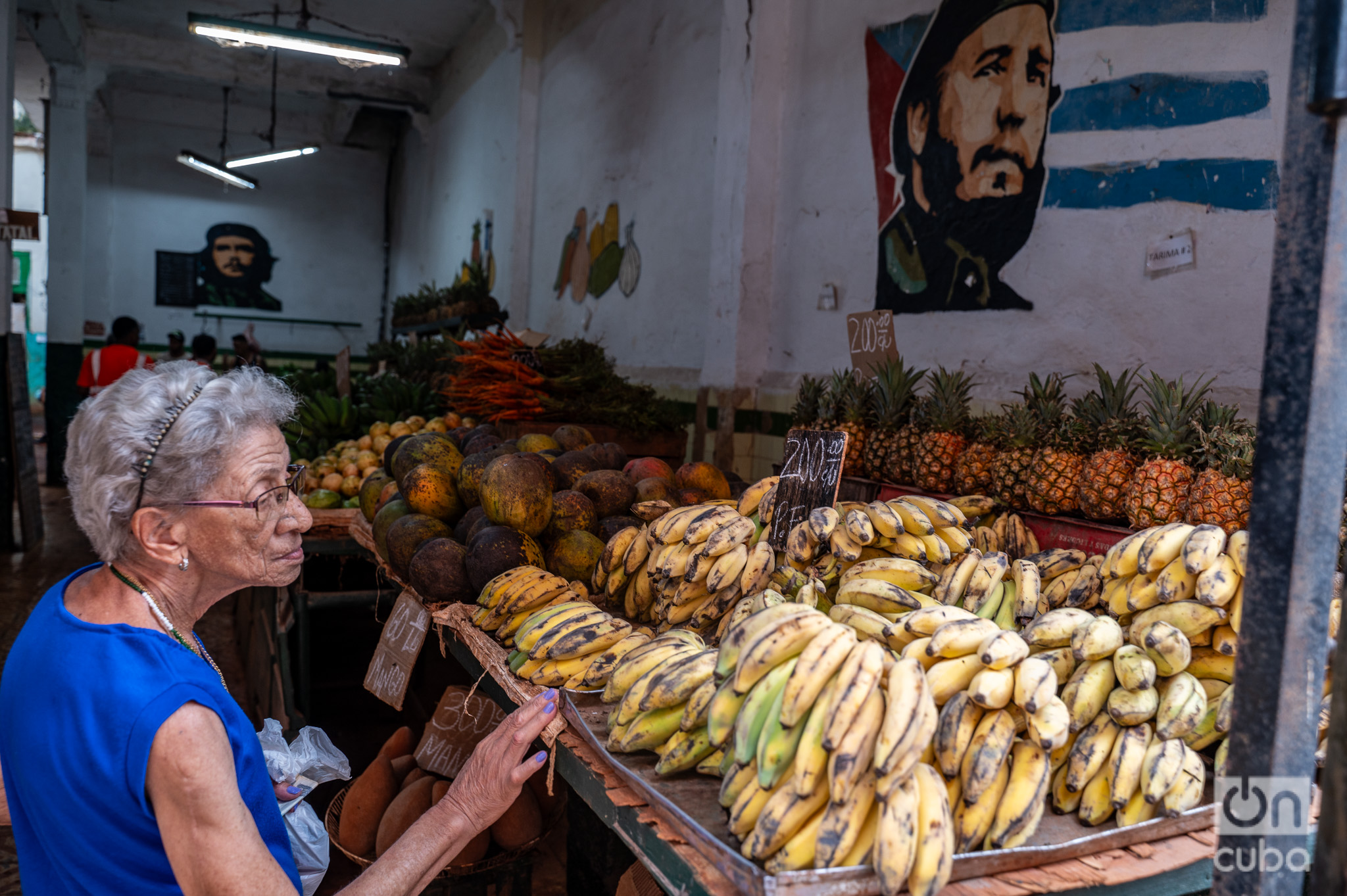
To mitigate the situation, 66.7% of the women surveyed consider that financial support would be the most useful for them, followed by home care services (60.6%) and the action of community support groups (21.2%).
These data reveal the significant burden that many women take on when caring for their family members, especially when they have no support. The results reflect a silent and ongoing struggle, which not only highlights the resilience of Cuban women in the face of current challenges but also the psychosocial impact of migration among them. It is enough to read some of the phrases where these women summarize experiences that they considered relevant to their current situation. “Despite being a housewife and devoting more time to my family, it is difficult to cover our needs. Accessing psychological assistance and medication is impossible. Coping with everything is costing me,” said one of the respondents. On the other hand, regarding the difficulty of balancing responsibilities at home with work, one of them noted: “I have very little institutional support at my workplace and few remote work alternatives. They ask me to take on the role of a caregiver, being young and capable of developing professionally.”
Accepting the separation from the family due to emigration is a grief that they must overcome. If we add to this the care of loved ones in circumstances as complex as the current ones, the situation worsens. In addition, a society not organized to assume the aging of its population worsens the situation. The testimonies confirm this: from the lack of essential supplies to meet the specific needs of sick people, to the inability to find alternatives to state care so that the young population continues working when their elders fall ill.
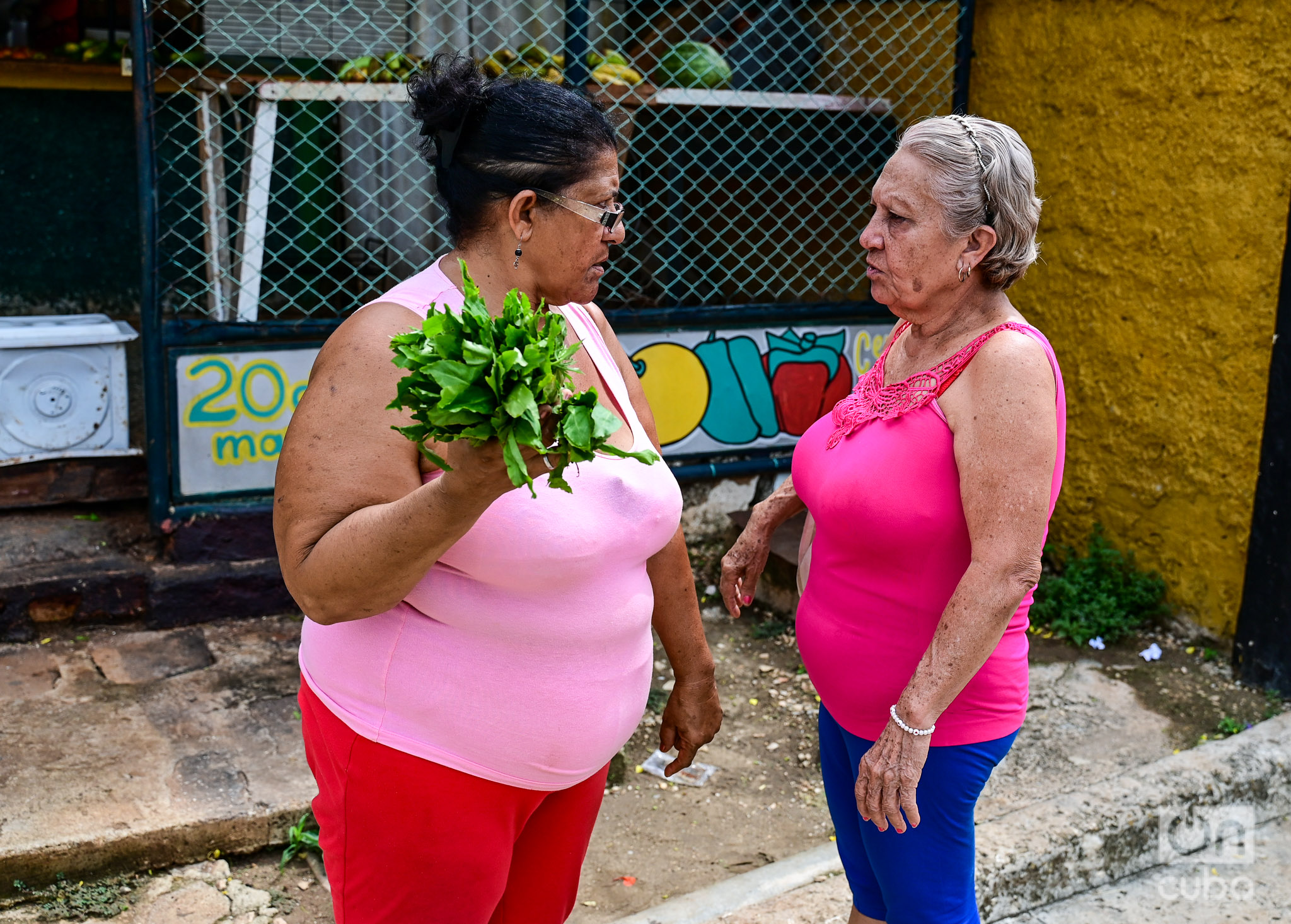
Remittances, a palliative
The article “Análisis crítico desde la economía feminista de las realidades del cuidado” (Critical analysis based on the feminist economy of the realities of care), by Dr. Georgina Alfonso, published in 2022, shows the gaps in terms of care that persist in Cuba. The study indicates that the number of people over 75 years of age has increased, with 39.8% of households having at least one older adult.
It is also explained that care is an almost exclusive responsibility of women, many of whom are economically active, but leave their jobs to take care of dependent people. In addition, the State recognizes that care and domestic work generate inequality for women, both at home and in the workplace, according to the expert.
“Given the weakness or direct absence of public provision to resolve care needs, households resort to buying care (if they have the economic capacity to do so) or to unpaid care work provided mostly by women,” says Alfonso. “This is a problem not only because it limits the realization of their lives, but because society develops unequally. Women individually face the problem of reconciling time and work (personal, family, and work). The adjustments of this supposed reconciliation are detrimental to their quality of life,” she continues.
For years, state institutions such as senior homes and nursing homes have tried to respond to the needs of assistance and socialization of the most unprotected elderly. However, at present, they have not managed to meet the demand for care.
In this scenario, it is increasingly common to find private sector ventures focused in this direction.
Celia del Carmen Hernández, leader of the private enterprise CuidArte con Amor S.R.L., in Holguín, assured this journalist that, according to her work experience, migration has a direct impact on women from Holguín in terms of caring for dependent people.
Since April, her team has cared for 14 elderly women, of which only 4 have not suffered the emigration of children or close relatives. The other 10 benefits from the services of the MSME thanks to the payments made by their children or grandchildren from countries such as Spain, Qatar, Mexico and, mainly, the United States.
“In many cases, the grandchildren are abroad and the elderly women are left in the care of their daughters or sons in Cuba, who contact our enterprise to be able to resume their social life,” the entrepreneur from Holguín explains. “The absence of their loved ones has left these women in a state of loneliness that not even video calls can alleviate,” she says.
Among the private care agencies in Havana, D’Hall Cuidados S.R.L stands out, not only for the services it provides to older adults, sick people, and people with disabilities but also for the training it offers, through workshops, to its staff and families.
One of its founders, Dalila Martínez, comments that elderly women whose families have emigrated if they have children are not usually left completely alone. “There is always a family member who gives them support and, in many cases, the children return more frequently or try to take their mothers when they are already very sick. Of the elderly women we have cared for last year and this year, only a few have been abandoned or are extremely alone. On the other hand, older men tend to die in total emotional abandonment, since paying a caregiver does not always solve this problem.”
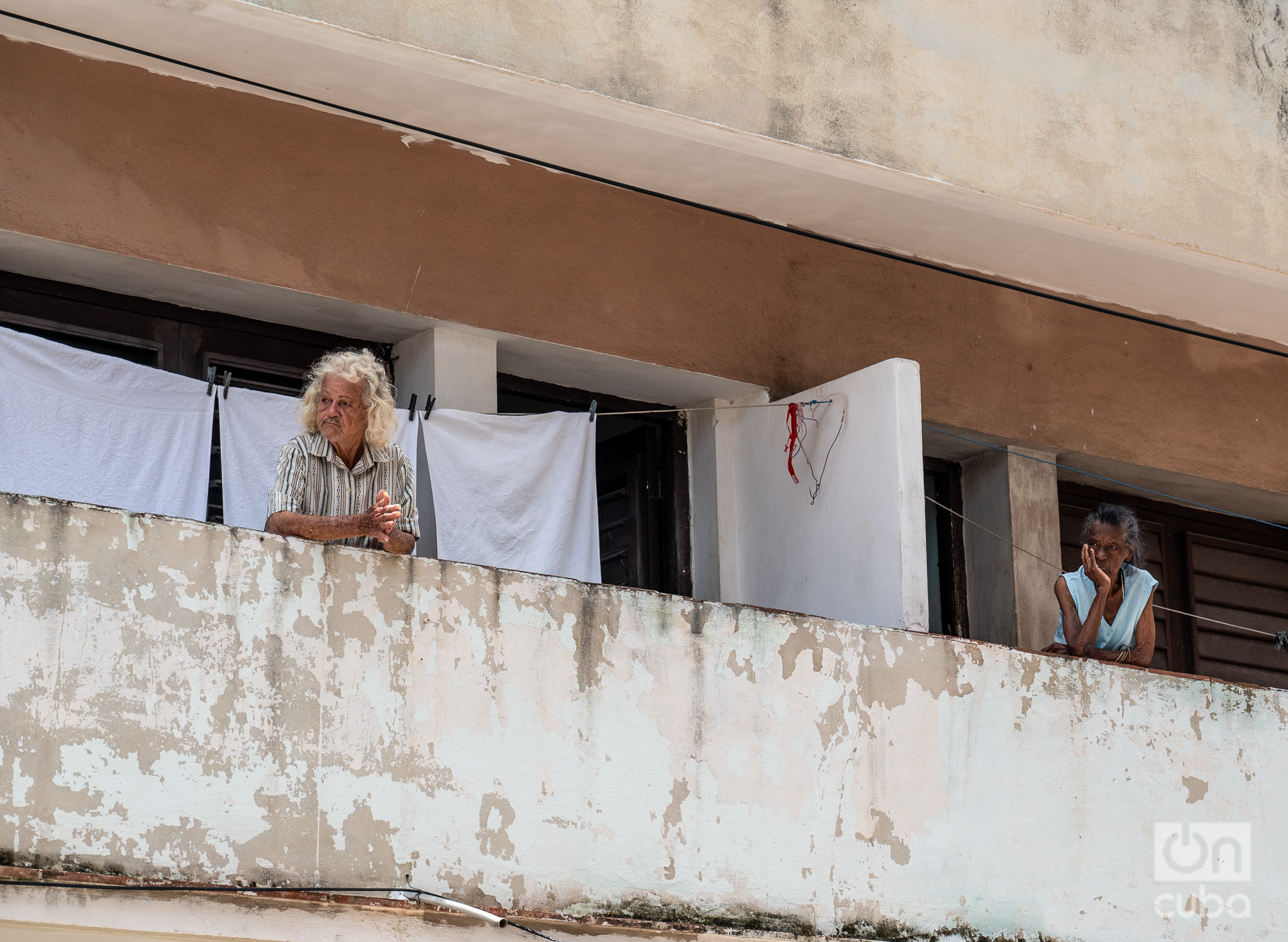
According to Martínez, in 2023 they attended to 105 cases, of which 73.38% were women. Meanwhile, single women accounted for 1.32%, and men without family support were 17.24% of the total cases attended to.
In contrast, Martínez Hall points out that there is another variant, where older women must care for their husbands, parents, or disabled children alone because their other relatives have emigrated.
“These women rarely seek help on their own: it is usually relatives from abroad who advise them to do so,” says the entrepreneur. “As if that were not enough, they face a series of chronic illnesses that are offset by stress and workload, with the constant fear of being left alone after the death of a family member. Caregivers often come to D’Hall Cuidados with clear signs of caregiver syndrome, and when their loved one dies, they face complicated grief due to this condition (in 2023, 15.24% of their cases were sick female family caregivers, a figure that has increased to 31.25% in 2024). Many take more medications than patients and, in cases of dementia or bedridden, some die even before their relatives due to physical and emotional exhaustion.”
Dalila puts a face to the impact that these situations generate on health: “A woman came to us looking for caregivers for her husband with vascular dementia, and she ended up being our patient, with a terminal illness. Another case was that of a woman with rheumatoid arthritis, caregiver of her husband with prostate carcinoma, who also became our patient due to the physical and emotional exhaustion she was already suffering.”
And she adds: “There are a great many male family caregivers, especially many sons in the care of their mothers. Sadly, men are the most affected when the family emigrates, leaving them more unprotected.” The money that the family sends from abroad helps, but it is only a palliative, according to Dalila, since it is not easy for them to find cheaper products due to transportation limitations, power outages and the high cost of living.
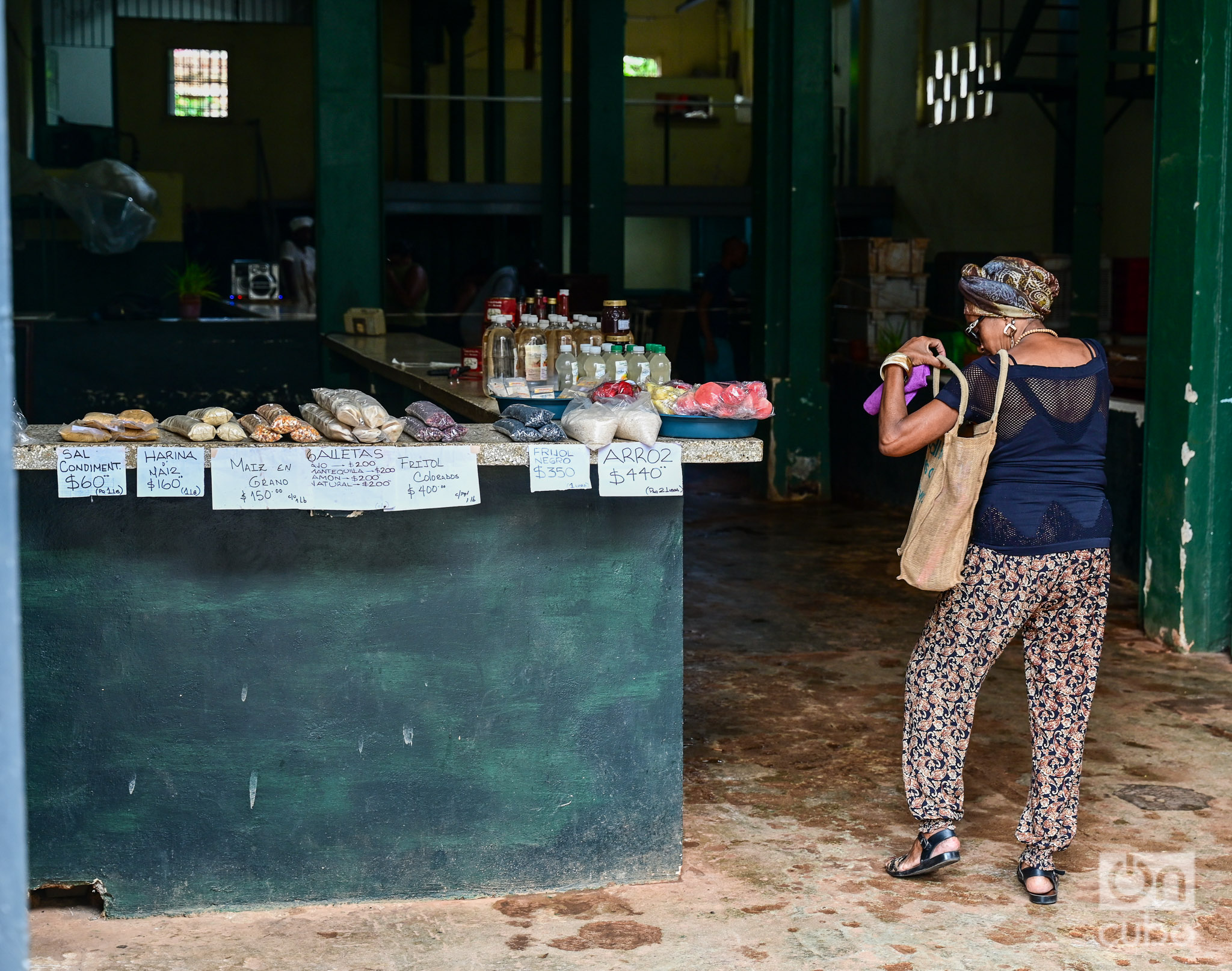
To bridge the gaps
On October 15, 2024, Decree Law 109/2024 “National System for the Comprehensive Care of Life” was published in the Official Gazette of the Republic of Cuba. The law seeks to consolidate a National System for the Comprehensive Care of Life, in order to guarantee the right of people to receive care and socially recognize those who assume such responsibilities.
Applicable to all people, the decree promotes a cultural change in the organization of care, as well as a more equal distribution, and benefits both those who need it and those who provide it. Furthermore, it recognizes the unpaid work of those who, within the family nucleus, are responsible for these tasks, and encourages respect for their rights as a social commitment.
This is a necessary decision that has been, for years, a demand in workshops, research, and analysis on the subject, where it has also been evident how essential it is to diversify spaces for specialized care for caregivers, not only in the health network but in all institutions and organizations that can contribute to the formation of capacities so that care is developed in a more effective environment.
The recognition of inequality in the social organization of care shows the need to educate and promote a cultural change towards the reduction or elimination of the gender gap, which is also a background to this phenomenon. However, beyond the existence of the decree, both the government and society, in general, must still face many other challenges that derive from the multidimensional and systematic crisis we are going through; the triad of the aging-migration-economic crisis does not have easy solutions.
In addition to this, the phenomenon urgently demands the implementation of efficient strategies to address the causes of emigration and to think of alternatives that are consistent with the consequences that this is already causing in Cuba, which in 2025 will be the oldest country in Latin America and is expected to be one of the oldest in the world by 2050.
________________________________________
Note:
1 To preserve the anonymity of the respondents/interviewees, fictitious have been used.
2 To prepare this report, the author contacted women she knew and others outside her circle of relationships who were experiencing emigration situations in the family. The questionnaire directed to them was shared in Facebook and WhatsApp groups and a total of 66 responses were obtained. A questionnaire was also conducted among young people who now live outside the country. Thirty-two responses were obtained. In addition, it was possible to obtain the testimony of seven people in an open interview format, who told their experiences or that of their close relatives. We thank them all for their collaboration.

